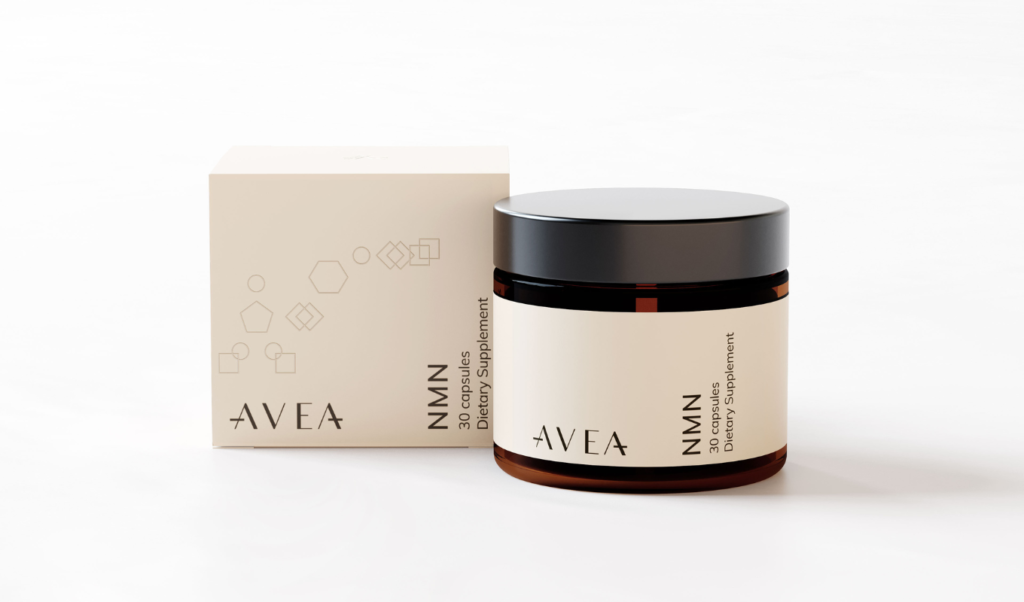Nutrition and fasting are intimately connected. Tapping into your body’s nutrient-sensing networks through fasting, can unlock a wealth of benefits, from weight loss to improved insulin sensitivity, as well as biological age reversal.
In this article, we will explore the science behind fasting, and what you need to fast properly and safely. The trick is to find the sweet spot which does not cause unnecessary stress or worsen micronutrient deficiencies in your body. As with any powerful tool, optimality is seldom found at extremes.
In this article
Fasting and Hormesis
Fasting is a form of hormesis that involves a temporary stressor or challenge to the body. When the body is deprived of nutrients and energy, several stress response pathways are activated, which can improve cellular health and boost longevity. Hormesis also promotes adaptation and resilience, which can protect against the negative effects of chronic stress and ageing [1].
Intermittent Fasting (IF)
Intermittent fasting is an eating pattern that cycles between periods of eating and fasting. It usually includes a low or zero-calorie period, followed by a normal feeding period lasting between 12 and 48 hours [2]. There are different types of IF methods:
- Complete water-only fasting: This involves consuming only water for a set period, typically between 24 to 72 hours. It is one of the most challenging and extreme types of IF and should only be done under medical supervision.
- Alternate-day fasting (ADF): This involves alternating between days of normal calorie intake and days of very low calorie intake, typically around 500 calories. This type of IF has been shown to be effective for weight loss and improving insulin sensitivity.
- 70% energy restriction every other day: Similar to ADF, this involves reducing calorie intake by 70% every other day. This type of IF may be easier to stick to for some people as it still allows for some food intake on fasting days.
- The 5:2 diet: This involves eating normally for five days of the week and restricting calorie intake to around 500-600 calories for two non-consecutive days. This type of IF has been shown to be effective for weight loss and improving metabolic health.
- Time-restricted feeding (TRF): This involves restricting your eating window to a certain number of hours per day, typically between 6 to 12 hours. For example, you may choose to only eat between 12 pm and 8 pm each day. TRF has been shown to be effective for weight loss and improving metabolic health.
The Sweet Spot: 12 hours on, 12 hours off
Dr. Valter Longo, nutrition and fasting expert, highlights that to benefit from fasting, it’s essential to fast for the right duration. He suggests eating within a 12-hour window each day (for example from 8am — 8pm) and fast for the other 12 hours. Fasting longer than 12 hours may cause gallstones and reduce lifespan.
‘’So if you are fasting for 16 or more hours each day (e.g. following the 16/8 Intermittent Fasting method), you should reconsider your approach. When people fast too often, they seem to live shorter, ” says Dr. Longo.
”Skipping breakfast, a trend amongst intermittent fasters, might be problematic. People that skip breakfast may live shorter, but eating all day and snacking all night is also a problem. Those who eat for 15, 16 hours a day, also start developing health issues as they might be overweight, obese, and develop insulin resistance. 12 hours on, 12 hours off seems to be the sweet spot, with only positive results so far’’.
Periodic Fasting (PF)
Periodic fasting refers to a period of severely calorie-restricted or water-only fasting that lasts between 48 hours and one week. This fasting period can occur at specific intervals or on an as-needed basis [3].
Performing prolonged fasting (PF) should be limited to less than once every two weeks and typically for a limited number of days per year, not exceeding four days. PF can be achieved through water-only fasting or a fasting-mimicking diet (FMD), which is a plant-based diet that mimics the effects of water-only fasting on specific biomarkers.
The Sweet Spot: 3 days fast, every month or season
Assuming that you are in good health and have consulted with a healthcare professional first, the best way to reap the benefits of PF is to fast every month or every new season for 3 days. Extended periods of fasting can be detrimental to health.
During this period, the body enters proper ketosis, induces strong autophagy, and reboots stem cells and the immune system. Proper ketosis is achieved after a minimum of 2-3 days of fasting, and ketones have various health benefits, such as reducing inflammation, improving brain health, and metabolism. After 3 days, several health benefits spring into action, including stem cell maintenance and protection.
Biological Mechanisms
Compared to dietary restriction (DR), intermittent and periodic fasting (IF and PF, respectively) do not necessarily require an overall reduction in calorie intake. They are emerging as safer strategies to improve longevity and healthspan, whilst causing little to no side effects.
Your Body’s Ageing Defence Pathways
Fasting activates repair signalling pathways like AMPK and autophagy, which play crucial roles in cellular metabolism, energy regulation, stress response, and cellular quality control. Dysregulation or impairment of these pathways can lead to neurodegenerative diseases such as Alzheimer’s and Parkinsons, or metabolic disorders including cancer [4], [5].
IF also stimulates the production of human growth hormone (HGH). Higher levels of HGH are associated with increased muscle mass, improved bone density, reduced body fat, and better insulin sensitivity.
The Promise of Sirtuins (SIRTs)
During fasting, the body undergoes metabolic changes that activate the sirtuins. These changes include, a decrease in blood glucose levels, an increased production of ketone bodies, and a reduction in insulin and IGF-1 levels. Sirtuins respond to these by promoting cellular processes that enhance cellular survival and repair, such as DNA repair, autophagy and mitochondrial biogenesis.
Studies have shown that sirtuin activation through fasting or caloric restriction can increase lifespan in yeast, flies and mice. In humans, studies suggest that IF or CR can improve healthspan and delay the onset of age-related diseases, such as type 2 diabetes, cancer, heart and brain diseases [6].
Intermittent fasting, periodic fasting, and age-related diseases
Ageing is the leading cause for diseases, including cancer, diabetes, neurodegenerative, cardiovascular and immune diseases [7]. Whilst human studies are challenging, several show promising results in protection against such diseases.
Diabetes & Cardiovascular diseases
Fasting can have a profound impact on weight loss, abdominal circumference and body fat, whilst improving metabolic health. It may also reduce blood pressure and lower risk factors for diabetes and cardiovascular diseases, by significantly improving total cholesterol, fasting glucose, and triglycerides levels [8].
Neurodegeneration
Some studies on mice have shown that alternate day fasting or protein-restricted fasting can reduce cognitive impairment and reverse autonomic nervous system deficits linked with Alzheimer’s and Parkinson’s diseases. Fasting promotes the growth of new brain cells and improve your ability to handle stress, regulates ketone bodies, activates sirtuins, and boost mitochondrial biogenesis [9].
Immune Dysfunction
As we age, our immune function and regenerative capacity decline due to impaired hematopoietic stem cell (HSC) function. This may lead to autoimmune disorders like multiple sclerosis (MS). Fasting in animal models boost longevity by preventing and reversing age-dependent immune dysfunction. It has also been shown to improve life quality in people with MS [10].
Cancer
Recent studies in animal models have shown that periodic fasting (PF) and fasting-mimicking diets (FMD) lasting for 2 or more days, can delay various cancer progression as effectively as chemotherapy. This protects normal cells from chemotherapy’s toxic effects and sensitise cancer cells to treatment [11].
Who should not perform fasting
Fasting is not suitable for everyone. Extended periods of fasting can even aggravate health by causing dehydration, electrolyte imbalances, hypoglycemia, malnutrition and muscle loss.
Multiple scientific studies prove that fasting enhances healthspan and lifespan in males. It may have the opposite effect on females due to physiological changes associated with the menstrual cycle.
As biology plays a huge part in shaping male and female metabolic responses, it might be optimal to refrain from fasting if you:
- are pregnant
- are chronically stressed
- do not usually sleep well
- are new to diet and exercise
- have a history of disordered eating
- have not consulted a professional
We recommend a milder approach, especially as suggested by Dr. Longo . Make sure to consult with your physician before jumping into any strict dieting plan.
Consider fasting-mimetics; NAD+
NAD+ is a molecule that plays a key role in metabolism, and its potential role in promoting longevity and reducing the risk of age-related diseases has made it a popular molecule in the field of longevity research.
As we age, NAD+ levels naturally decline, which has been linked to a wide range of age-related diseases, including neurodegenerative disorders, metabolic disorders, and cardiovascular disease [12].
Longevity supplements such as NMN, an NAD+ precursor, exercise, and fasting boost NAD+ levels, which in turn activate the sirtuins, our longevity genes. Increasing NAD+ levels may help to mitigate the effects of ageing and age-related diseases by enhancing cellular metabolism and supporting the body’s natural defence mechanisms.
The Avea NMN
At Avea, our NMN supplement is third-party tested for purity and contains Uthever® NMN, a brand recognised for its top quality and safety, as well as, less temperature sensitivity and more bioavailability.
It has shown promising results in a recent randomised, double-blind, controlled clinical trial to evaluate its efficacy and safety.

Exercise for Longevity
Exercise is a powerful lifestyle intervention that improves blood pressure, blood sugar control, insulin sensitivity, cholesterol profile, mood, motivation, cognitive function, and sleep quality.
It…
References









